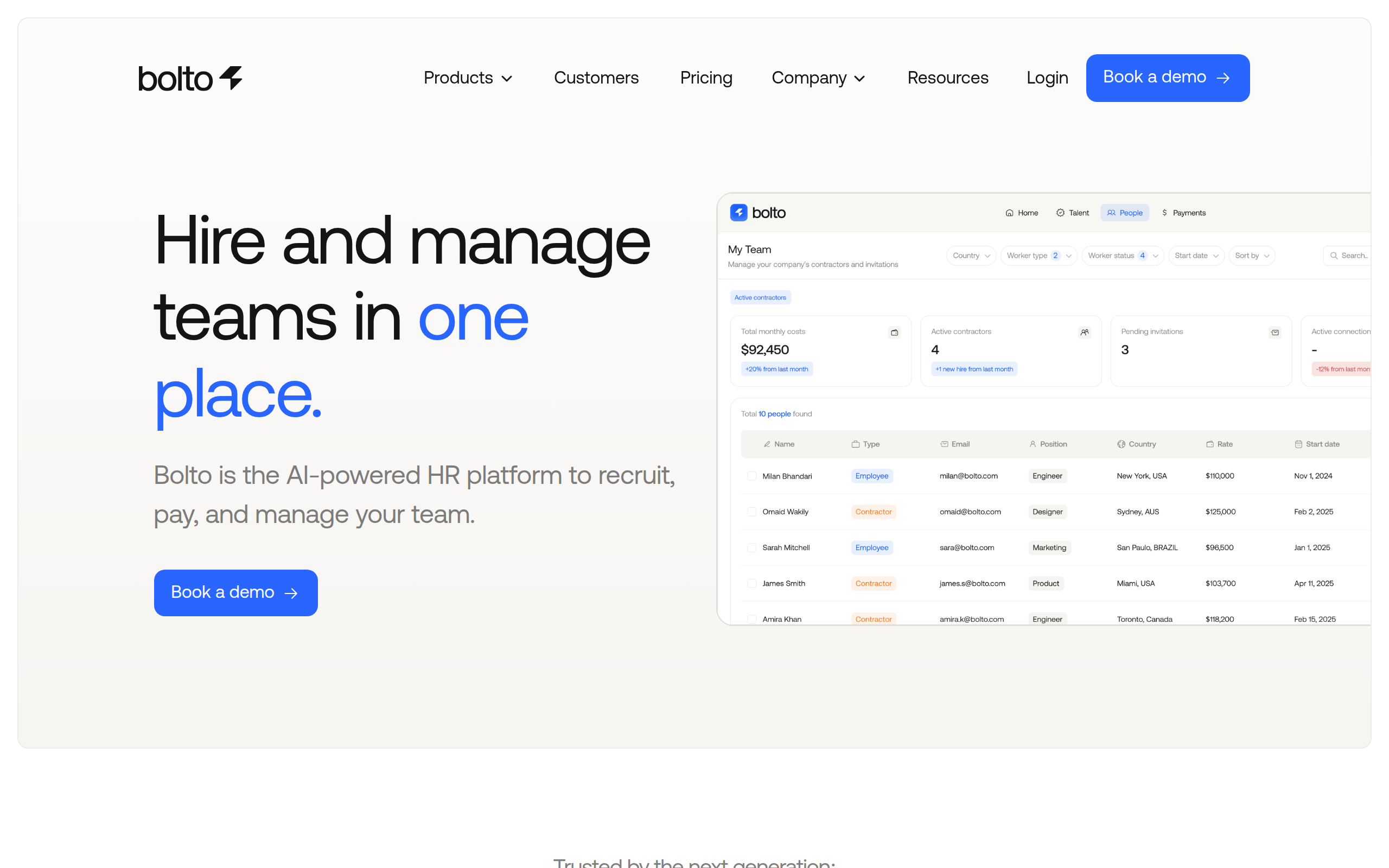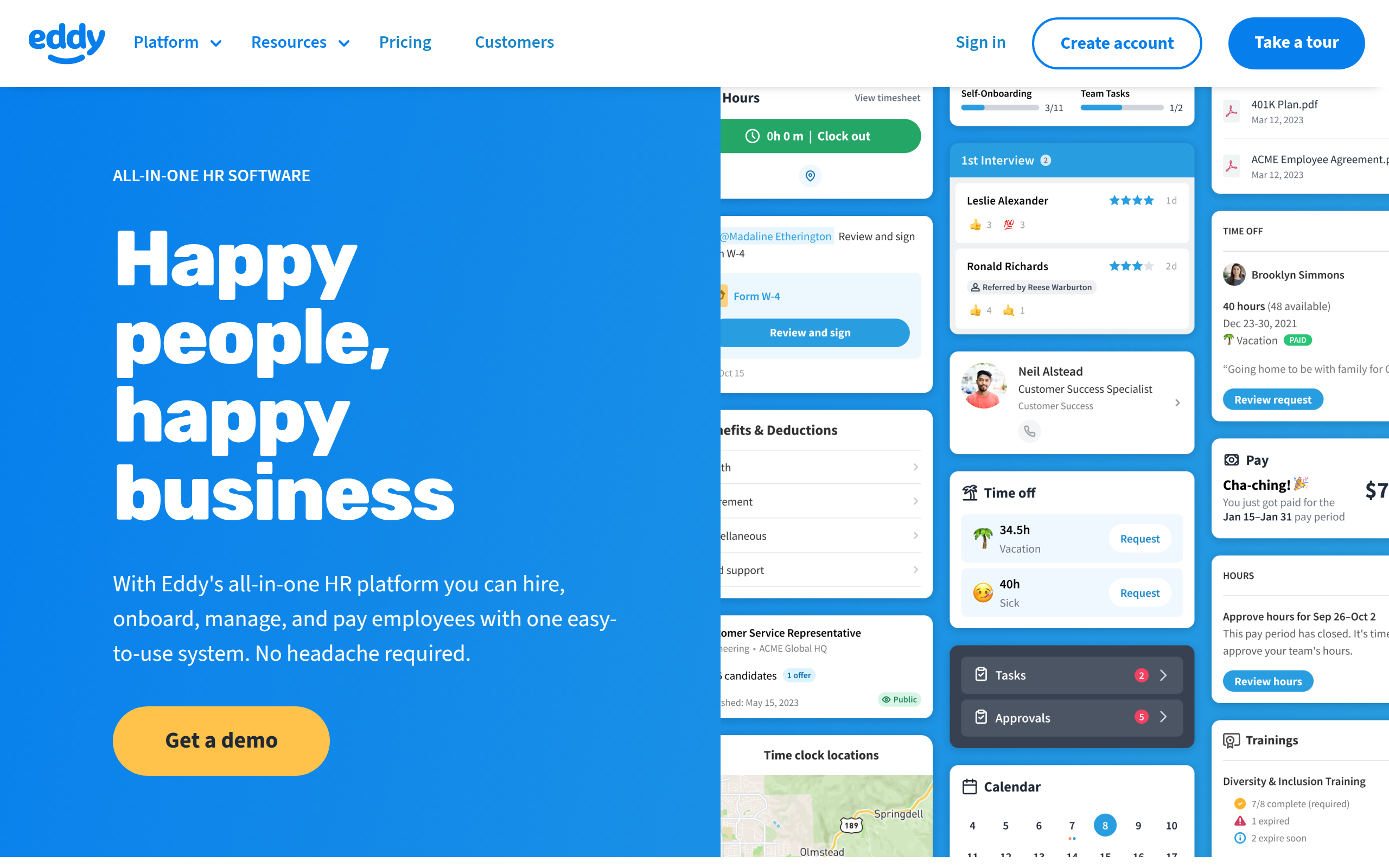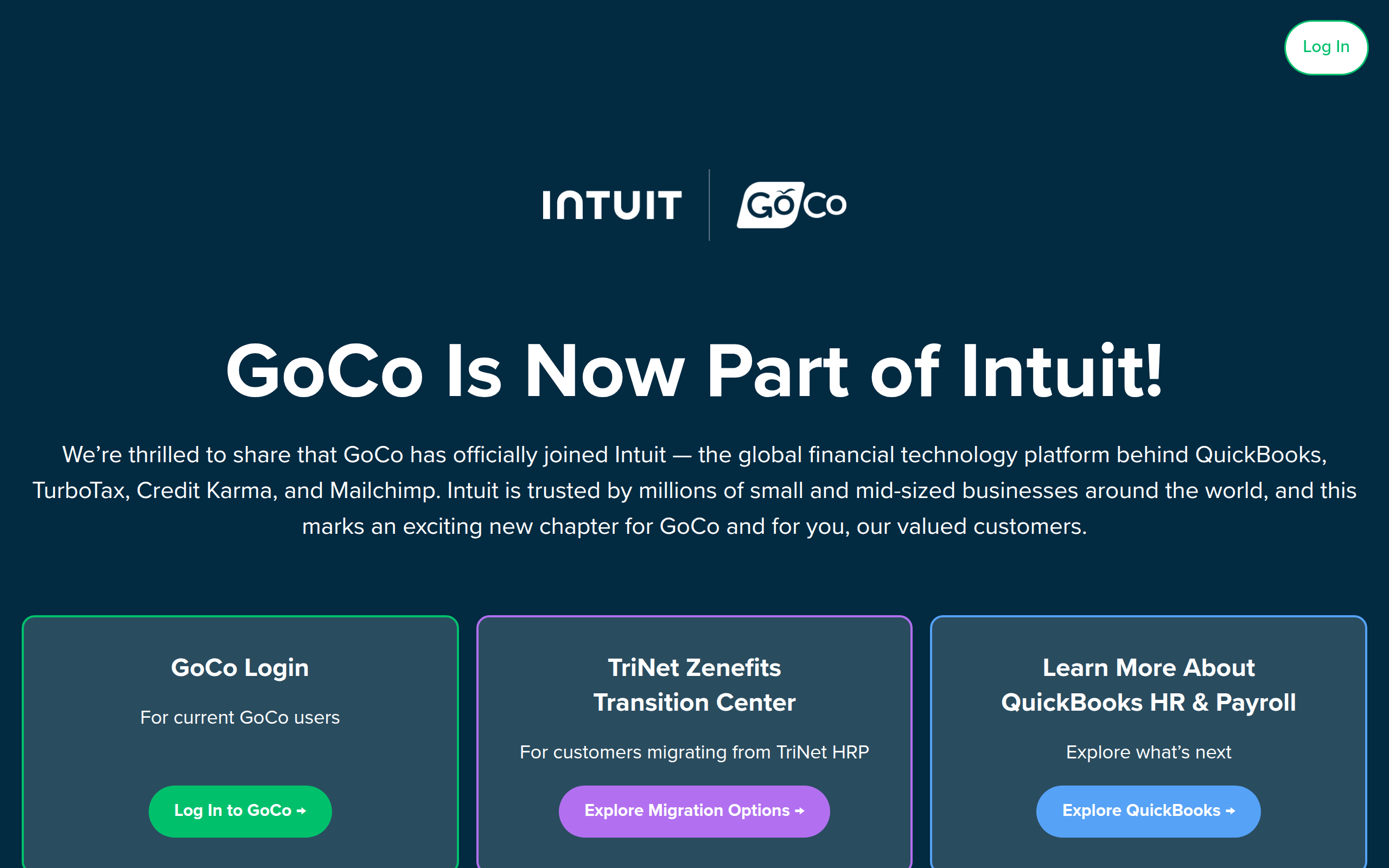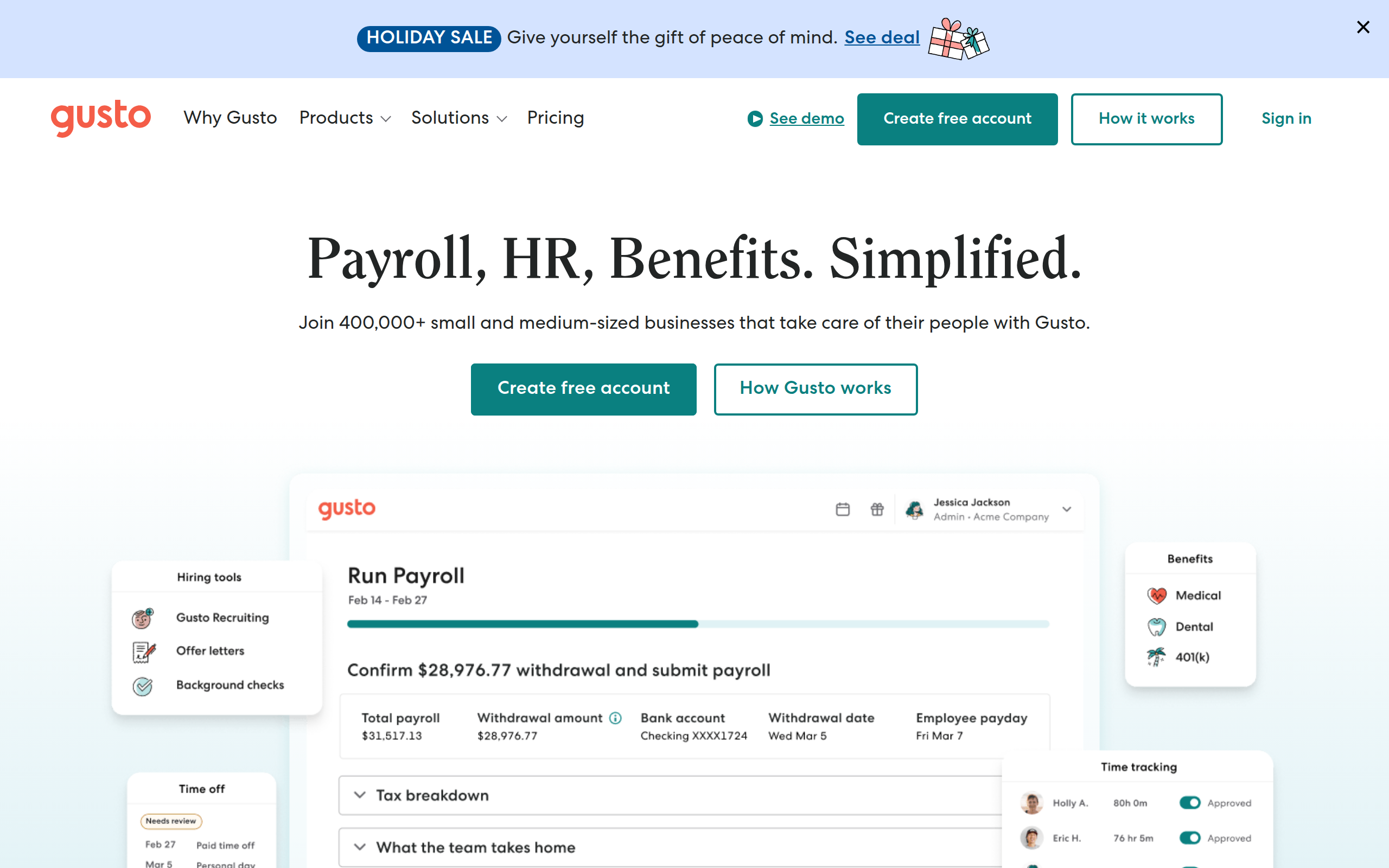Best HR Software for Small Business: 10 Top Picks (2026)

For founders and small business leaders, HR is a balancing act. You’re trying to hire the best talent, manage payroll, and stay compliant, often without a dedicated HR department. The solution is hr software for small business: a centralized platform designed to manage and automate these core people operations, from onboarding to benefits. Juggling spreadsheets and separate tools quickly becomes a major time sink, pulling you away from growing the business. The administrative burden is real; some reports suggest small businesses can spend a quarter of their time on these tasks alone. This is where modern HR software steps in, not as a luxury, but as a core operational tool for efficiency and growth.
What is HR Software (HRIS) for Small Businesses?
HR software, often called an HRIS (Human Resource Information System), is a centralized platform designed to manage and automate core people operations. Think of it as the single source of truth for all employee and contractor data. Instead of a messy folder of documents and multiple logins, an HRIS gives you one place to handle everything from onboarding and payroll to time off and compliance. For a growing startup, the right hr software for small business combines these functions, uniting recruiting, payroll, and employee management into a single, seamless workflow.
Telltale Signs It’s Time to Invest
Wondering if your Google Sheets and manual processes have reached their limit? It’s probably time to invest in dedicated HR software if you recognize these signs:
- Payroll consumes your day. What should be a simple process now takes hours of manual calculation, cross checking, and data entry.
- You’re hiring across state lines. Each new state adds a new layer of tax registration and compliance complexity that spreadsheets can’t manage reliably.
- Onboarding feels chaotic. Your new hire experience is inconsistent, with paperwork getting lost and critical steps being missed. A great employee onboarding experience can improve retention by 82%.
- Compliance keeps you up at night. You’re constantly worried about changing labor laws, tax filings, and the potential for costly errors.
- Your “stack” is a tangled mess. You use one tool for recruiting, another for payroll, and a third for paying international contractors, creating endless administrative work.
Benefits of HR Software for SMBs
Adopting the right hr software for small business isn’t just about getting organized. It’s a strategic move that delivers tangible benefits, allowing you to compete with larger companies for top talent.
- Massive Time Savings: By automating repetitive tasks like payroll runs, tax filings, and onboarding paperwork, you and your team can reclaim hours each week to focus on strategic priorities.
- Reduced Compliance Risk: Automated systems help ensure you’re correctly withholding taxes, filing necessary paperwork on time, and adhering to labor laws. This is critical, as nearly a third of businesses report making payroll errors.
- Enhanced Employee Experience: A professional system provides employees with self service access to pay stubs, benefits information, and time off requests, creating a more empowering and transparent work environment.
- Better Hiring Outcomes: Integrated platforms can connect recruiting with HR, streamlining the process from sourcing candidates to onboarding new hires. This speed is a competitive advantage, especially when the cost of a bad hire can equal 30% of their first year salary.
- Fosters Learning and Development: Modern HR platforms are not just for administration. Many include lightweight performance management, goal setting, and feedback tools. This helps you build a culture of growth from day one, which is essential for retaining ambitious talent.
- Foundation for Scale: As you grow from 5 to 50 employees, or expand from one country to many, a scalable HR platform grows with you, preventing operational chaos.
Selection Criteria and How to Choose
Not all HR platforms are built for the unique needs of a small, agile business. When evaluating your options, prioritize these criteria:
- Core Functionality: Does it master the essentials? Look for robust, easy to use US payroll, benefits administration, and employee record keeping.
- Scalability: Can the platform grow with you? Consider whether it supports payroll across multiple states and has options for hiring internationally, either through contractor management or an Employer of Record (EOR) service.
- Ease of Use: As a founder or small team leader, you don’t have time for a steep learning curve. The interface should be intuitive and designed for non HR professionals.
- Integrated Recruiting: For tech startups, hiring is everything. Platforms that combine recruiting with HR and payroll, like Bolto, can drastically reduce time to hire.
- Data Security and Compliance: You are entrusting the platform with your company’s and employees’ most sensitive information. Look for providers that demonstrate a commitment to security with certifications like SOC 2, data encryption at rest and in transit, and robust access controls.
- Quality of Support: When a payroll or compliance question comes up, you need fast, reliable answers from a human. Look for providers that offer dedicated support, not just a generic ticket queue.
Our Evaluation Methodology and Why You Can Trust This List
To build this list of the top hr software for small business, we focused on what truly matters to startups and growing companies. We analyzed platforms based on their ability to solve core pain points around hiring, payroll, and compliance without unnecessary complexity. Our evaluation included assessing user reviews from founders, the transparency of their pricing models, the quality of customer support, and, most importantly, their capacity to support a business from its first hire to a globally distributed team.
Costs and Pricing for SMB HR Software
Pricing for hr software for small business typically follows a Per Employee Per Month (PEPM) model, often with a monthly base platform fee. This makes costs predictable and allows them to scale with your headcount.
For example, a US payroll platform built for startups might cost around $39 to $49 per employee, plus a base fee of $59 to $99 per month. More advanced features, international hiring capabilities (like EOR services), or dedicated support may come with different pricing tiers. Always look for transparent pricing without long term contracts, so you can choose a plan that fits your current stage and budget.
Top 10 HR Software for Small Businesses
Now that you know what to look for, let’s explore some of the best HR software options available for small businesses. Each of the platforms in this list has been selected for its suitability for smaller teams, focusing on core features like payroll, employee management, and ease of use. These solutions are designed to streamline your HR processes, save you time, and scale with your business as it grows.
1. Bolto HR

Built for lean teams that need to move fast, Bolto HR starts as a lightweight HRIS and lets you switch on payroll, contractor management, and EOR as you scale. It’s best for US startups that want payroll across multiple states now and a clear path to hiring globally without juggling multiple systems. Setup is quick, compliance guardrails are baked in, and international hiring doesn’t feel like an afterthought, though newer vendors mean you’ll want to verify specific integrations and country coverage during the demo.
Startup ready highlights:
- US payroll with automated federal and state tax calculations and filings.
- Global EOR and payroll to hire compliantly in 100+ countries.
- Unified contractor management with local currency payouts and tax forms.
- Core HRIS for employee records, time off, and custom onboarding workflows.
- Optional recruiting pipeline with prescreened global software talent.
- Heads up: Founded in 2023. Confirm integrations and country list before committing.
Pricing snapshot: Core HR from $9/month, Global Payroll from $29/month, and EOR from $599/month (varies by country). Book a demo for exact rates.
2. Bambee
Bambee gives small businesses something priceless: a dedicated, certified HR Manager plus a simple platform to keep policies, audits, and compliance on track. It’s ideal for US founders who want hands on guidance without hiring an in house HR lead. Time to value is immediate: your expert helps establish the right foundations, though payroll, benefits, and ATS capabilities come as add ons rather than core modules.
Startup ready highlights:
- One on one support from a dedicated HR Manager for audits and corrective actions.
- HR Autopilot to maintain up to date policies and year round compliance.
- Compliant onboarding and offboarding with e signatures and secure document storage.
- Built for US teams across all 50 states, scaling to about 500 employees.
- Optional guided payroll, benefits, and time tracking.
- Heads up: US only focus; not a full HCM or EOR solution.
Pricing snapshot: Flat monthly fee by headcount, starting at $299/month for 1 to 4 employees (plus setup). Guided payroll is an add on.
3. BambooHR

BambooHR is a friendly, fast to adopt HRIS that centralizes people data, hiring, and reporting, and then scales with US payroll and automated filings. For founders, it’s a quick win: clean workflows, strong onboarding, and a partner powered EOR path when global hiring beckons. The tradeoff is add on pricing for payroll and EOR, plus some advanced features gated to higher tiers.
Startup ready highlights:
- US payroll with automatic federal, state, and local tax filings; W2 and 1099 support.
- Manage contractors alongside employees from one system.
- Global hiring via an integrated EOR partner (Remote).
- Built in ATS and streamlined onboarding with e signatures and time off.
- 150+ integrations, including Zapier, QuickBooks, and Xero.
- Heads up: Payroll and benefits are US only add ons; advanced features require higher tiers.
Pricing snapshot: Starts around $10 per employee per month; payroll and EOR sold separately. Free trial and demo available with volume discounts.
4. Breathe HR
For UK SMEs that want a no fuss HRIS, Breathe HR keeps setup light and costs transparent. Teams up to about 200 people can centralise leave, performance, docs, and policies in an afternoon, then add recruitment or scheduling as needed. It shines as a UK first platform with a handy Xero payroll connection, but it doesn’t attempt US payroll or global EOR.
Startup ready highlights:
- Core HR: leave and sickness tracking, performance tools, e signatures.
- Employee self service via People Portal mobile app for time off and documents.
- Guided onboarding and offboarding plus optional recruitment add on.
- Native Xero Payroll integration with payslips surfaced in Breathe.
- Lightweight analytics including headcount and a Burnout Monitor.
- Heads up: UK centric; recruitment and time tracking are paid add ons.
Pricing snapshot: Flat monthly pricing by headcount, starting at £22/month. 14 day free trial; no long term contract required.
5. BrightHR
BrightHR bundles the must haves for service and retail SMBs (absence, rotas, and docs), then layers on mobile clock in, expenses, and legal advice options. It’s best for teams in the UK, Ireland, Canada, Australia, and New Zealand seeking affordable, practical tools from day one. Just note the lack of a US product and no native EOR for global hiring.
Startup ready highlights:
- Rota planning with clash alerts, open shifts, and instant notifications.
- Mobile clock in (Blip) with GPS geofencing and break logging.
- Unlimited document storage with compliance templates and read receipts.
- Optional UK payroll add on and 24/7 employment law advice.
- Integrations with Xero, QuickBooks, and Zapier.
- Heads up: Typically fixed term contracts; no US product or EOR.
Pricing snapshot: By quote; UK plans often start near £17 PEPM plus implementation. Demo available.
6. Eddy

Eddy streamlines HR for small US teams by uniting records, onboarding, time tracking, and payroll in a clean, approachable interface. Founders see quick wins from paperless workflows and compliant payroll across all 50 states. It’s a strong consolidator for day to day HR, though international payroll and EOR isn’t the focus and the integration catalog is intentionally lean.
Startup ready highlights:
- Full service US payroll with automated tax filing in every state.
- Hiring add on with job board posts to Indeed and LinkedIn.
- Paperless onboarding for W4s, I9s, and new hire packets.
- Time and attendance via web or mobile app with geotagging.
- Integrations with QuickBooks Online, Checkr, and Guideline.
- Heads up: US only payroll; no global EOR.
Pricing snapshot: Starts at $8 PEPM plus a base fee; payroll is an add on. Select plans offer a free trial.
7. Factorial

Factorial focuses on giving SMBs an affordable, all in one hub for daily HR (time, scheduling, performance, and docs) while syncing cleanly with popular payroll providers. Implementation is fast, and modular plans keep costs predictable. The caveat: it’s not an EOR and doesn’t run US payroll natively, so you’ll pair it with a payroll vendor for filings.
Startup ready highlights:
- Mobile clock in and out, geolocation, and timesheet approvals with shift scheduling.
- Fast onboarding and compliant e signatures for offers and policies.
- Payroll hub that centralizes payslips and syncs to QuickBooks and partners.
- Built in ATS with multiposting to job boards.
- AI for review summaries and workforce cost insights.
- Heads up: Requires a separate provider for US payroll tax filings; no EOR.
Pricing snapshot: From $8 PEPM with custom quotes available. Short free trial offered; budget separately for payroll.
8. GoCo

GoCo is a flexible HR hub that lets small teams automate onboarding, digitize paperwork, and keep benefits in sync without ripping out existing payroll or brokers. It’s a pragmatic choice for founders who want guided workflows and rapid setup. Global hiring is available via integration, while embedded US payroll is powered by Gusto for those who want an all in one feel.
Startup ready highlights:
- Automated onboarding with Magic Docs for e signing offer letters, W4s, and I9s.
- Use your current payroll provider or switch on embedded payroll (powered by Gusto).
- “Bring Your Own Broker” benefits with digital open enrollment.
- Contractor onboarding and payments with W9 collection and 1099 delivery.
- Integrations with Slack and Zapier for notifications and no code automation.
- Heads up: Global payroll and EOR relies on a Remote integration, not native.
Pricing snapshot: Starts at $8 PEPM for core HR. Add ons for Payroll Sync and Benefits Admin priced separately.
9. Gusto

Gusto is the payroll first platform many US startups begin with, bundling W2 and 1099 payroll, onboarding, benefits, and basic HR into a single, approachable package. Time to value is fast thanks to automated tax filings across multiple states and unlimited runs. You also get a bridge to international work with global contractor pay and optional EOR, bearing in mind that key features like payroll for multiple states sit in higher tiers.
Startup ready highlights:
- Full service US payroll with automatic federal, state, and local tax filings.
- Self serve onboarding with e signed I9s and W4s.
- Pay US 1099s and international contractors in 120+ countries.
- Optional Gusto Global EOR for full time hires abroad.
- Integrates with QuickBooks, Xero, Greenhouse, Lever, and more.
- Heads up: Entry level Simple plan omits payroll across multiple states, time tracking, and next day pay.
Pricing snapshot: From $40/month plus $6 PEPM; contractor only plan available. No long term contracts; setup is free.
10. Rippling

Rippling brings HR, payroll, benefits, and IT together so lean teams can onboard in minutes and automate across the stack. It’s the pick for startups that need rock solid US payroll today and a scalable route to global contractors and EOR tomorrow without swapping systems. Pricing is modular and quote based, and native global payroll is still limited to a handful of countries, so confirm coverage and total cost upfront.
Startup ready highlights:
- Full service US payroll with automated filings at every level of government.
- Global reach: pay contractors in 185+ countries; hire via EOR in 80+.
- Built in ATS to streamline hiring and day one IT provisioning.
- Powerful workflows that connect HR, IT, and tools like Slack.
- 600+ integrations across accounting, collaboration, and productivity.
- Heads up: Entirely modular pricing; native global payroll coverage is narrow.
Pricing snapshot: By quote. Core HR starts around $8 PEPM plus a base fee, with payroll, EOR, and IT modules sold separately.
Implementation and Rollout Plan
Getting started with a new HR system doesn’t have to be a months long project. Modern, cloud based platforms are designed for rapid implementation. A typical rollout follows these simple steps:
- Gather Your Data: Collect necessary employee information, including tax forms (W4s, I9s) and bank details.
- Configure Your Account: Set up your company details, payroll schedule, time off policies, and any benefits you offer.
- Migrate Information: The HR software provider will often assist you in securely importing your existing employee data.
- Train Your Team: Show your employees how to use the self service portal to access their information and make requests.
For many small businesses, this entire process can be completed in just a few days, getting you up and running quickly.
Integrations, APIs, and Automation
The power of modern HR software is amplified when it connects with the other tools you use to run your business. Through APIs (Application Programming Interfaces), your HR platform can share data with accounting software, project management tools, and more, automating workflows and reducing manual entry. For example, a new hire completed in your HR system could automatically create a user account in your other company applications.
However, the biggest efficiency gains come from reducing the need for integrations in the first place. A natively unified platform that combines recruiting, HR, and payroll eliminates messy data transfers between different tools. This consolidation means a candidate who accepts an offer can be onboarded and added to payroll in a few clicks, saving significant administrative effort. If you’re tired of fragmented systems, it might be time to see how an integrated platform works.
Trends in HR Software for Small Businesses in 2025
The HR tech landscape is constantly evolving. For 2025, three key trends are shaping the best hr software for small business:
- AI Powered Efficiency: Artificial intelligence is no longer a buzzword. It’s being used to screen candidates faster, check for payroll errors before they happen, and provide smarter insights from your HR data.
- Global Hiring as a Standard: With over 60% of companies facing talent shortages, access to a global talent pool is a necessity. Top platforms now build in functionality to easily hire and pay international contractors or full time employees through an Employer of Record (EOR) service.
- The Rise of Consolidated Platforms: Founders are rejecting the “a tool for everything” approach. The clear trend is toward single, unified platforms that handle the entire employee lifecycle, from recruiting and onboarding to payroll and compliance.
Conclusion: Choose for Scalable Growth
Choosing the right hr software for small business is more than an administrative decision; it’s a strategic investment in your company’s growth. The right platform automates manual work, mitigates compliance risks, and provides a professional experience that helps you attract and retain top talent. By freeing yourself from the complexities of payroll and HR admin, you can focus your energy where it matters most: building your product, talking to customers, and scaling your business.
Ready to see how an all in one recruiting, HR, and payroll platform can accelerate your startup? Explore Bolto.
Frequently Asked Questions
What is the difference between HRIS, HRMS, and HCM?
While often used interchangeably, they technically represent different scopes. HRIS (Human Resource Information System) covers core HR functions like payroll and employee data. HRMS (Human Resource Management System) adds talent management features. HCM (Human Capital Management) is the broadest, including strategic workforce planning. For a small business, a strong HRIS is the most critical starting point.
When should a startup get HR software?
The best time is before you feel overwhelmed, ideally when you make your first hire. Starting with a scalable system from day one establishes good processes, ensures compliance from the get go, and saves you a massive migration headache later.
How much should I budget for hr software for small business?
A good rule of thumb is to budget between $40 and $60 per employee per month, including platform fees, for a quality US payroll and HR system. Costs for global EOR services are typically higher, often a flat monthly fee per employee.
Can HR software handle both employees (W2) and contractors (1099)?
Yes, modern platforms designed for startups excel at this. The best solutions allow you to pay and manage both full time W2 employees and 1099 contractors, both domestic and international, within the same system.
What is an Employer of Record (EOR) and do I need one?
An EOR allows you to hire full time employees in a country where you don’t have a legal entity. The EOR acts as the legal employer, handling local payroll, taxes, benefits, and compliance, while the employee works for you. It’s the fastest way to hire global talent without the cost and complexity of setting up a foreign subsidiary.




